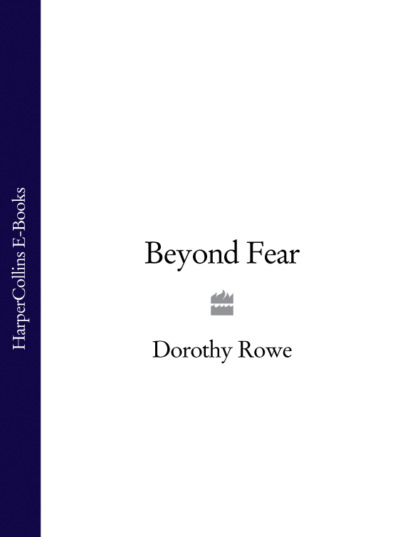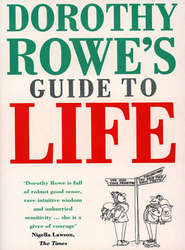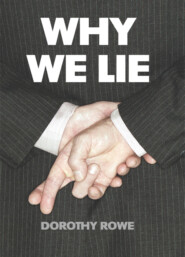По всем вопросам обращайтесь на: info@litportal.ru
(©) 2003-2024.
✖
Beyond Fear
Автор
Год написания книги
2018
Настройки чтения
Размер шрифта
Высота строк
Поля
Jack spoke fondly of the Major. He said, ‘The Major had a great influence on me. With him, well, sometimes we just sat in front of the fire and made toast - you know, bread on toasting forks - and listened to music. Other times, well, he wasn’t in a hurry. There’d be mutual masturbation, and after, well. I know I was the passive partner, but I’d got something out of it.’ He described how the Major would dress up in a woman’s suspender belt and stockings and would dress Jack as a schoolgirl. He said, ‘I got something out of it being loved and wanted, if only for one thing.’
Jack spoke of ‘men’s sex and women’s sex’. Men’s sex, as he wanted it, was chiefly arousal and excitement, not orgasm. ‘I don’t put much importance on that,’ he said. If, when they were making love, Joy had an orgasm first, Jack would lose interest immediately. Making love to Joy was very important to him, but so was masturbation. He also valued his collection of pornography. Reading pornography was, he said, very stimulating. He found it immensely pleasurable to spend an afternoon in his bedroom, where he would dress up, as the Major had done, in suspender belt and stockings and read what he called ‘my books’, his collection of pornography.
Joy accepted these activities, although she refused to watch his blue films and hated to look at his pornography. This was part of his life which was separate from her, and, as she explained to me later, when she first discovered what Jack did she did not know any other men and supposed that all men were like that. She now knew that they were not. Mark’s abhorrence of Jack’s collection of books made that quite clear, but she thought that she should accept this quirk of Jack’s character because she loved him. ‘I’m very good at loving,’ she said.
Jack defended his activities to me. ‘Why should I stop doing it? I’m not hurting anyone.’
When, as children, we suffer some severe trauma and discover that the world is not at all as we believed it to be, we struggle to master our experience - that is, to create a meaning for it which can fit without much difficulty into our meaning structure. However, our experience of life is so limited that we do not have many alternative meanings from which to choose our interpretation. We experiment with elements of the traumatic experience itself, perhaps believing that there is some hidden meaning which we can discover if we keep repeating in some form the experience itself. Jack was a child and therefore could respond only with the eroticism of a child. As the psychoanalyst Ferenczi said, ‘The erotic life of the child remains at the level of foreplay, or knows satisfaction only in the sense of “satiety” but not the feeling of annihilation that accompanies orgasm.’
(#litres_trial_promo) Jack’s experience of the erotic remained that of a child. Moreover, as a child he had dealt with his fear of the Major by identifying with him. Anna Freud called this process ‘identification with aggressor’, but the old saying ‘If you can’t beat them, join them’ would do just as well.
Joy spent a week helping Alice when one of her children was ill. It had been a painful, difficult time for both women. They knew that they should talk, but neither wanted to distress the other. Risking Alice’s pain and anger, Joy told her about the discussions she and Jack had had with me and how she now understood him much better. She said to me, ‘Isn’t it strange, you can live with a man for thirty-five years and not know him.’
Joy talked to Alice about Alice’s childhood when, as the eldest, Alice had to endure the birth of five siblings. One of these babies had lived only four days, and Jack had ordered Joy, ‘You’re not to cry.’ Forbidden to talk about her grief, for talking brought on tears, Joy withdrew into a depression. She struggled on with performing her duties as wife and mother but, as she told me, ‘I can’t remember Alice then. She was the schoolgirl in the family. It’s no wonder she was argumentative and demanding.’
Alice, as she told her mother later, did not want her to talk about those times. ‘I thought you were going to criticize me and tell me what a great trouble I was to you.’ Joy was not placing the blame on Alice. She was reviewing what she herself had done and was feeling the pain that loving parents feel when they realize that what they have done to their children, often with the best of intentions, has hurt and harmed them.
Alice told Joy of her encounters with Jack when she was just blossoming into womanhood. ‘He said that he wanted to undress me. This made me feel that I was supposed to respond, like the ball was in my court. I had to put up a barrier, but at the same time I felt that because I had refused him he rejected me. I still feel he’s rejecting me.’ Joy hastened to reassure her that Jack had not rejected her and that he loved her very much. Alice said, ‘I wish he’d write and tell me that.’
Jack felt very discomfited at the prospect of writing another letter, but his face lit up with happiness as he told me how, when he had phoned Joy recently, Alice had answered the phone, and instead of immediately calling Joy had asked him how he was. He was delighted too that, as Jenny was leaving after Christmas, she had invited them to visit her.
His face was again alight with pleasure as Joy told me about her visit to Mark and his family, and about Mark’s little daughter. Jack longed to see his granddaughter, but, as he told me with great sadness, ‘Mark won’t talk to me.’ A few weeks later Jack told me that he had written a second letter, this time to Alice. Mark, too, had phoned and taken the time to talk to him.
Jack’s story shows how the sexual abuse of children can be handed down from generation to generation, like the family jewels. It seems likely, from Jack’s memory of the trip to the woods and the ice cream, and the fact that he retrieved this memory and wondered about its significance, that he had had some sexual encounter when he was small. However, the events of his early life (he said he remembered almost nothing of his first eight years) and many of the events of his childhood he hid in the deepest recesses of his memory. When he said that he did not expect his children to remember what he had done to them, he was speaking truthfully, for he did not remember what had been done to him.
This forgetting was not just because he was the kind of person for whom repression is the most favoured form of defence. In those situations where he had been the victim of sexual and physical abuse he was completely helpless. There was no one to whom he could turn for help, and he was a small child in a world of powerful and dangerous adults. He did not want to remember what had been done to him, because with those memories would come that feeling of terrible helplessness and abandonment.
Jack’s story shows, too, how a child, needing a personal relationship in the way he needs food, will, in the way that a starving man will eat anything, accept affection in whatever form it is offered. Children should never be put in a position where they have to accept love at any price but, alas, many of them are.
Denying Who You Are (#ulink_5a9914b8-a127-5e4e-96b8-c35a9356754d)
The price that Jack had to pay did not seem to him at the time too high. He was in the business of surviving, so learning to laugh at cruelty instead of being shocked by it did not seem significant; nor did learning to ignore his grief at the loss of the tenderness and love which should have been his by rights. He did not see that learning to laugh at cruelty to yourself means that you are no longer shocked at the cruelty inflicted on others, and that you might now be as cruel to others as others were to you. He could not possibly see, as a child, that in not allowing himself to grieve for himself he would, in later life, not allow his wife to show her grief for the child she had lost, and that this would cause great hurt to the person he loved and needed so much.
Deciding as a child not to allow yourself to grieve over the cruelty that has been done to you may mean that in adult life you cannot assess or appreciate the sufferings of others. Or you may become the kind of person who sees nothing wrong with persecuting the people whom you dislike. Quentin Crisp, himself no stranger to persecution, was asked on Irish television, ‘Are you accepted more now you are successful?’ He replied:
I think people misunderstand the principle of persecuting homosexuals, or, indeed, of persecution in general. It is not directed at a person, it is directed at anybody who is not likely to find defenders. During the course of your life you pile up a great deal of bitterness - your wife does not love you, there are your children who do not obey you, there is your boss who does not give you any preferment - and one day you see someone whom no one will blame you for attacking, and then all your bitterness pours out. And it doesn’t matter who it is, as long as you can lash out at somebody without anyone reproaching you later. This is why people attack the weak, homosexuals, but especially effeminate homosexuals.
(#litres_trial_promo)
Or you may become the kind of person who is plagued by depression. You have no sympathy for the child that you once were. It is very striking in therapy how depressed people will talk with great sympathy about, say, the starving children of Africa, but when they speak of the child they once were there is not a trace of sympathy or concern for that little frightened person. ‘I was a very bad child,’ they will say, ‘and deserved to be punished by my parents.’
Among those people who devote their lives to helping others are many who show enormous sympathy for other people’s suffering but are remarkably tough and unpitying towards themselves. They can recognize that as a child they had a difficult time, and can acknowledge that they suffered a great deal, but they refuse to give to themselves in adult life what, as a child, they lacked. Instead, they lavish this love and concern on others, and draw satisfaction from that. This is the defence mechanism of projective identification, the means by which we can identify with another person, and then give to that person what we would like to be given to us. Many of the people who are devoted to animals, even to the point of giving up their own lives to save animals from slaughter or of murdering those who appear not to care for animals, are engaged in this kind of identification. This is a kind of second-hand self-love, and it is the equivalent of eating thin gruel rather than a decent meal. However, those people who have never been loved properly as children can find it very difficult to love themselves to the degree which their humanness requires in adulthood.
Children try to rebel against adults who treat them badly, but the adults can punish them by regarding them as being mad and/or bad. To avoid this fate children learn to conform, and they endure the pains and humiliations of childhood because they know that as well as the threat there is a promise. If you are disobedient as a child bad things will happen to you, but if you are good you will be rewarded, and the reward is that when you grow up you will have the power and privileges that adults have. One of the privileges of adulthood is that you can not only take your bad feelings out on the children in your charge, but you can feel virtuous while doing it. ‘I’m only beating you for your own good, darling.’ Some parents do not indulge in such hypocrisy, but what we all do as we grow up and encounter life’s difficulties is try to feel good about ourselves. We need to think well of ourselves so as to find the courage to face life. If we suspect that we may have been damaged during our upbringing we shall think less well of ourselves, and our courage may fail.
In order not to feel sad and uncertain some adults say, ‘I had a good childhood and my parents were wonderful,’ and maintain this view by remembering very little of their childhood. Other people, less successful in forgetting the painful events of their childhood, insist that what happens to us in childhood has little effect in adult life. Despite the intense interest in recent years in therapy and counselling, there are still many people who maintain this view. Yet such people will work hard as parents, worrying about their children’s education, teaching them good manners and healthy eating habits, all the things which they believe will help the child in adult life. If I comment, as I often do, that if what parents do has no effect on their children then a lot of parents have wasted an awful lot of time, they look pained and confused. They had been demonstrating the wonderful ability we all have of holding two opposing beliefs at one and the same time.
By denying that bad things happened to us in childhood, or by denying that what happens to us in childhood has any significance in our later life, we create disjunctions, gaps in what should be the coherent story of our life. This has many serious consequences; one is that because we cannot see the connections between the events of our childhood and our adult life we continue to do to our children what was done to us. Thus do the sins of the fathers continue to be visited upon the children. To recognize that what was done to us in childhood has damaged us and prevented us from fulfilling our potential requires great bravery and an endurance of pain.
To recognize that what was done to you in childhood has profoundly affected you means that you have not only suffered in childhood but that you cannot enjoy the power and privileges of being an adult in charge of children. The privileges of parenthood are considerable. I remember how my mother and my sister, six years older than me, used to urge me to obedience as a child by telling me not to be selfish. They would, for instance, tell me to carry out some task and save them the trouble of doing it themselves. I would observe that by my acting unselfishly they were enabled to do what they wanted to do - that is, to be selfish. If I pointed this out they would say that I was a difficult, ungrateful child. I found this very unpleasant, but fortunately I did not decide to tell myself that these things did not happen.
If we learn to deny our experiences we fail to become the person we know we could have been. Some of us understand this very clearly, but most of us do not. We are all haunted by a sense of loss because all of us have denied something of ourselves, but only some of us can name this sense of loss. Sarah Kane in her last play before she killed herself, named her sense of loss. The play is a monologue in which she often speaks of searching for someone she has never met. The penultimate line of the play is ‘It is myself I have never met, whose face is pasted on the underside of my mind.’
(#litres_trial_promo)
For most of us, all that we know of the myself we have never met is an ache and a longing. Because we cannot name it we find it frightening. We try to ignore this pain, or obliterate it with indulgences of food or drugs or alcohol, or gifts to ourselves, or by prodigious feats of self-denial, or we try to run away from it by immersing ourselves in continuous hard work, or frantic, competitive play, or we try to expel it in our works of art, or bury it in depression, or belittle it in contempt for another’s weakness, or destroy it in violent, murderous rage. However, it remains a painful vacancy, there to trouble and frighten us just when we thought we were safe.
To be safe in any situation we need to know just what the dangers are. To keep ourselves safe from disease we need to assess the factors in each disease which could harm us and how able we are to ward off each threat. In so doing we have to take into account how physically strong we are and what practical measures we can take to avoid infection.
Just as we are surrounded by threats to our physical safety, so we are surrounded by threats to our sense of being a person. We need to assess the dangers realistically, and not run away from them or tell ourselves that they do not exist. We need, too, to assess how able we are to counter the dangers and to deal with the effects. The more we value and accept ourselves the better able we are to deal with threats to our meaning structure. However, every act of lying to ourselves - for that is what denial is - undermines our sense of being valuable and acceptable, and having the right to exist as the person we are. The less we value and accept ourselves the greater every threat to our meaning structure becomes, and the more and more desperate the defences we devise to hold ourselves together as a person.
That multitude of behaviours which gets labelled as neurotic or psychotic, or as mental illness or mental disorder, or as simply mad, has one common cause. It is the loss of confidence in ourselves. We see ourselves as valueless, unacceptable, even wicked, and, in the face of a threat to our meaning structure, we feel ourselves falling apart, shattering, crumbling, even disappearing. We seek to defend ourselves, and the less we value ourselves the more desperate the defence we need to construct.
Whatever defence we construct is a means of interacting with or fending off the people around us. They, and society generally, evaluate and respond to the defence we choose to use. If we use the defence of working hard and achieving to avoid having to deal with the pain of denial, society is likely to reward us because we live in a society which regards hard work and achievement as virtues. But what happens when our defence conflicts with society’s norms and values? How does society respond to our need to defend ourselves with a desperate defence?
Chapter Five How Society Responds to Mental Distress (#ulink_00d6c134-c99b-5248-a56f-e2d6f7df93b7)
Plus ça change, plus c’ est la même chose. The more things change, the more they remain the same. Survivors of the psychiatric system, both the patients who suffered at the hands of the system and those members of staff who were appalled by the cruelty of the system and struggled against it, can only agree that the more things change the more they remain the same. Some aspects of the psychiatric system are much better than they were twelve years ago, but much of the system, and the ideas on which it was based, remain. Administrators of a health service became managers of a health business, and psychiatry, which had rejected Freud and Jung and all that followed them, discovered psychotherapy. Such changes brought a vast increase in the psychiatric and managerial jargon that may try to sound thoughtful and efficient but of which Craig Newnes, one of the founders of the critical psychology movement, said, ‘The new National Health Service has embraced a culture of militarism, business jargon, and meaningless soundbites. The militarism is typified by a new language of targets or objectives and sometimes more pointedly; in a recent NHS marketing seminar group leaders discussed “Principles of Marketing Warfare”, “Attack Strategies (including guerrilla attacks)” and “Principles of Guerrilla Marketing Warfare”. And all of this presented to nurses and other staff quite explicitly pacifist in their politics or nature. The business agenda is reflected in a preoccupation with business plans and similar documents concerned with tendering, purchaser risk and efficiency improvements.’
(#litres_trial_promo) Miller Mair, a psychologist who has seen the changes in the psychiatric system over the last thirty years at close quarters, commented, ‘The language of marketed care degrades people and contributes to a cruder understanding of ourselves.’
(#litres_trial_promo)
Many psychiatrists use the jargon of therapy, but this jargon, as well as military and marketing jargon, is naught but a smokescreen to hide the fact that the system remains the same, and for the same reasons that the system in France remained the same - namely that the people who hold the wealth, prestige and power in the system do not want to relinquish what they hold, and are prepared to sacrifice those who have no power, prestige or money in order to keep what they hold.
’Twas ever thus. Throughout history no privileged group has ever voluntarily given up its privileges. The privileged always manipulate their society in order to keep their privileges, and much of this manipulation is aimed at keeping the society stable, for only in a stable society are their privileges safe. For a society to be stable it must be made up of people who conform to its rules and customs. Anyone who does not conform is a threat to society and to those who hold power.
Those who do not conform in terms of race, nationality or religion are easily dealt with. They become strangers, enemies, and are easily persecuted.
(#litres_trial_promo) Such persecution can be carried out in many different ways, but always the persecutors try to justify their cruelty. It is not unknown for psychiatry to supply such justifications. During the Second World War German troops were stationed in Norway, and a number of these soldiers had liaisons with Norwegian women. Children from these liaisons were classed by Hitler as Aryans, the highest possible classification in the Third Reich. As such they had to be taken from their Norwegian mothers and placed in special homes reserved for such privileged children. At the end of the war the Norwegians transferred their hatred of the Germans to these children. They were put in orphanages and asylums where they were sexually and physically abused and not educated. As justification for this a leading Norwegian psychiatrist explained that these children were mentally subnormal and insane because their mothers must have been insane to have consorted with German men. Only recently have a few of these children, now quite elderly, been able to speak publicly about their cruel treatment.
(#litres_trial_promo)
Those who do not conform to the laws and customs of society, but who cannot be expelled as strangers and enemies, are deemed to be bad or mad, if not both, but in any event they are punished because they are feared. For their hundredth issue the journal Open-mind ran a survey to find the heroes and villains of mental health. (A most distinguished group, Freud, R. D. Laing, Peter Breggin and myself, appeared in the survey as both heroes and villains, thus supporting my contention that different people see things differently.) The nominations for the villains category were submitted by a reader, Terry Simpson. His first nomination was ‘fear’. He explained: ‘Fear of “madness” is second only to fear of death in our society. Distressed people have been abused, isolated, assaulted and killed in a systematic way since the term “mad” was invented.’
(#litres_trial_promo)
Our fear of madness stems from our fear of annihilation as a person. If we do not understand our own fear, then when we find ourselves falling apart, crumbling, shattering, disappearing, we fear that we are going mad, and indeed our reaction to the threat of annihilation as a person is what society calls madness. Madness is our fear of annihilation and our defences against that fear. If we understand what our fear is - that is, that events have shown us that there is a serious discrepancy between what we thought our life was and what it actually is - we can, despite our sadness and distress, act sensibly and effectively. If we do not understand what the fear of annihilation is, we become frightened of it. We then deny this fear in ourselves and we reject those whose behaviour may remind us of the fear we want to deny. This is why people suffering mental distress are rejected.
Вы ознакомились с фрагментом книги.
Приобретайте полный текст книги у нашего партнера:
Приобретайте полный текст книги у нашего партнера:









